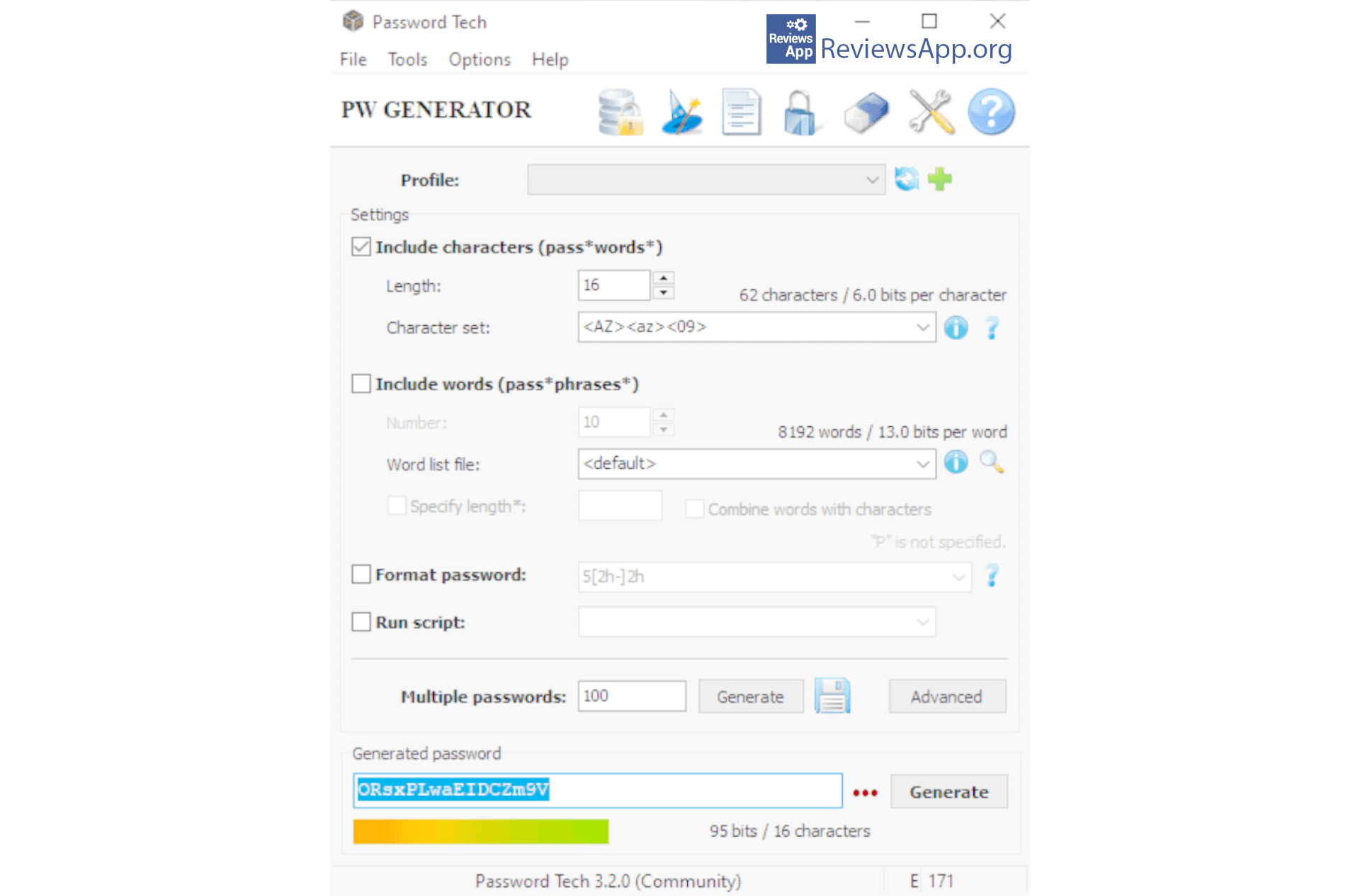

I typically use pw.graph and copy a random portion of the line.

G3r6Em5tlfjQARJx9gWHes7bCVwkzcP48KaSIXyUFBMLqT0op1uDNdih2nYZOv VFrsGwI9yAmabEnlRTKgZO23vUq4f6LHkzQP7tMjNW8ph1exuDoBCXSd50JciY GTvQON1dsZSpJmegBMK6bqnEciU7k0AoV2H4Wh53zr9YRfLlDxywXItu8CjPFaĦu1Db9MfyBApZdU7gqoV2PGwH5LcxWi3JNj8nkQCIThezSlYEXsOtrmF04KvaR The output of typing pw.alnum is every printable letter and number both upper and lower case: E6wgCfVBbXjyzYQ8USKl79LqPih0e5mvGrNHd3osaW2OxkJ1RM4nFTtcuZIpDA The output of typing pw.graph is five lines of every character that can be typed on a keyboard with the exception of the space bar: second is: alias pw.alnum="cat /dev/urandom | tr -dc '' | fold -w 1000 | perl -pe 's/(.)(?=.*?\1)//g' | head -n 5" zshrc.local file to create strong passwords. Let’s get started What is Password: A password, sometimes called.
#Linux random password generator how to
But your question gave me a perfect reason to bring forth this idea for being discussed. how to Create a Random Password Generator. I just added some of my own ideas on the basic concept.Īlso: I wonder if this isn't just a perfect example for ' write your first brute force password cracker'. Note: I'm not a Math Pro and I came up with this idea after reading an article in 2600 magazine which described this. get a ten sided dice where each side matches a number between 0 and 9.get a 26 sided dice, where each side matches a letter of the alphabet.Further, a dice has no memory and no bugs. In other words: The chance to throw 26 is about 0.04%. If one throws a 26-sided dice, the chance to throw, say 26 is 1:26. head then fetches the first password that meets the requirements.Ĭorrect me if I'm wrong, but: As far as I understood it, there is no way a computer can come up with a completely random string. This works by using the fold command to wrap the line into groups of 10, then using grep to fetch only lines that contain a special character. This works by grabbing bytes from /dev/urandom, deleting the ones that don't fit the pattern specified in the tr command, and limiting it to 10 characters with head.Ĭreating random passwords which contains special characters, is 10 characters long: $ cat /dev/urandom | tr -dc | fold -w 10 | grep -i | head -n uses a slightly different technique after tr removes unwanted bytes, as the idea is to force it to have at least one special character.
#Linux random password generator generator
Personally, I prefer not to use password generator as password generated are very hard to remember, but one portable solution is to use /dev/urandomĬreating random passwords which contains no special characters, is 10 characters long: $ cat /dev/urandom | tr -dc 'a-zA-Z0-9' | head -c 10`


 0 kommentar(er)
0 kommentar(er)
